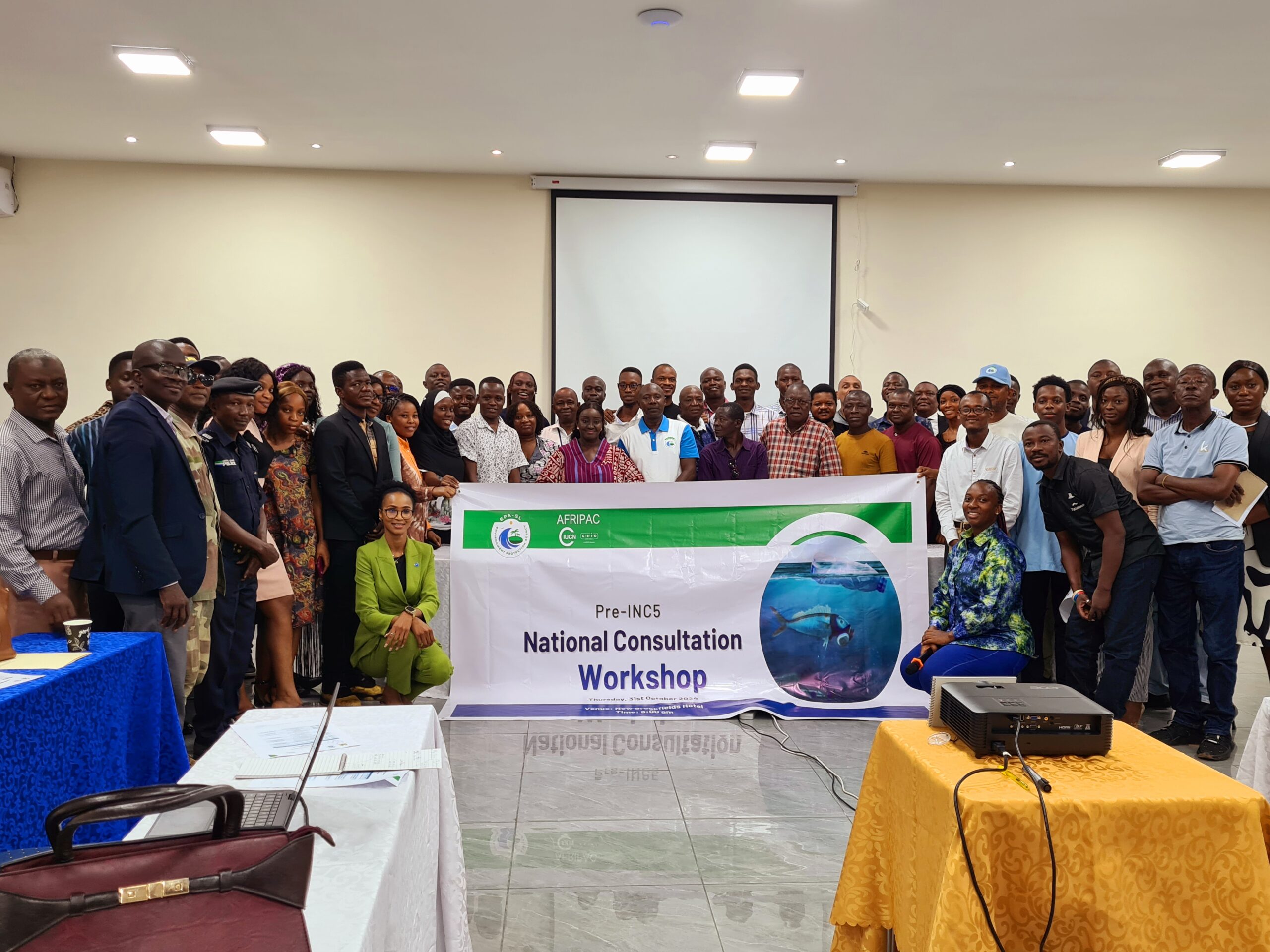By Desmond Isaac Macauley
On Thursday, 31st October, 2024 the Sierra Leone Environmental Protection Agency (EPA-SL) held a workshop on plastic pollution at the New Brookfields Hotel. This event aimed to raise awareness and prepare for upcoming negotiations on a global plastic treaty, with the fifth session of talks scheduled for November.
Deputy Minister of Environmental and Climate Change, Hon. Mimi Yema Nima Sobba Stephens, underscored the significance of the workshop. She expressed the ministry’s commitment to advocating for laws that address plastic waste in Sierra Leone. During her remarks, she shared her passion for environmental protection and highlighted the detrimental effects of plastic pollution on the ecosystem, human health, and the national economy.
Acknowledging the serious risks posed by plastic pollution, the Deputy Minister introduced a national plastic policy aimed at mitigating these harmful impacts. She called upon all stakeholders-including plastic manufacturers, consumers, and government agencies-to collaborate in developing strategies to reduce plastic use.
International expert Dr. Thomas Maes addressed the challenges posed by problematic plastic products and associated chemicals. He emphasized that plastic pollution has significant international and health implications, and highlighted global initiatives aimed at tackling this issue through regulation, innovation, and cooperation. “The United Nations Environmental Assembly has passed resolutions addressing plastic pollution, paving the way for discussions about a global treaty to minimize plastic waste and promote sustainable alternatives,” he noted.
The Director for Natural Resources Governance at the EPA described plastic waste as a critical global issue that affects not only Sierra Leone but many other nations as well. He emphasized that plastic pollution is a problem that transcends national borders, as waste from other countries often washes ashore, harming marine biodiversity.
Alimamy Sarafila Marah, Director of Next Chance Innovative Hub in Makeni, raised concerns about Extended Producer Responsibility (EPR). As a plastic recycling company, he highlighted that the biggest challenge they face is the collection of plastic waste. “If we had a system where producers are accountable for their plastic, it would significantly ease the process for recyclers like us to source raw materials and transform them into finished products,” Marah explained. He also mentioned that Next Chance has expanded its operations beyond recycling to include furniture production, aiming to reduce their carbon footprint through increased recycling facilities.
The workshop concluded with a collective call to action, emphasizing the need for united efforts to tackle plastic pollution effectively.

